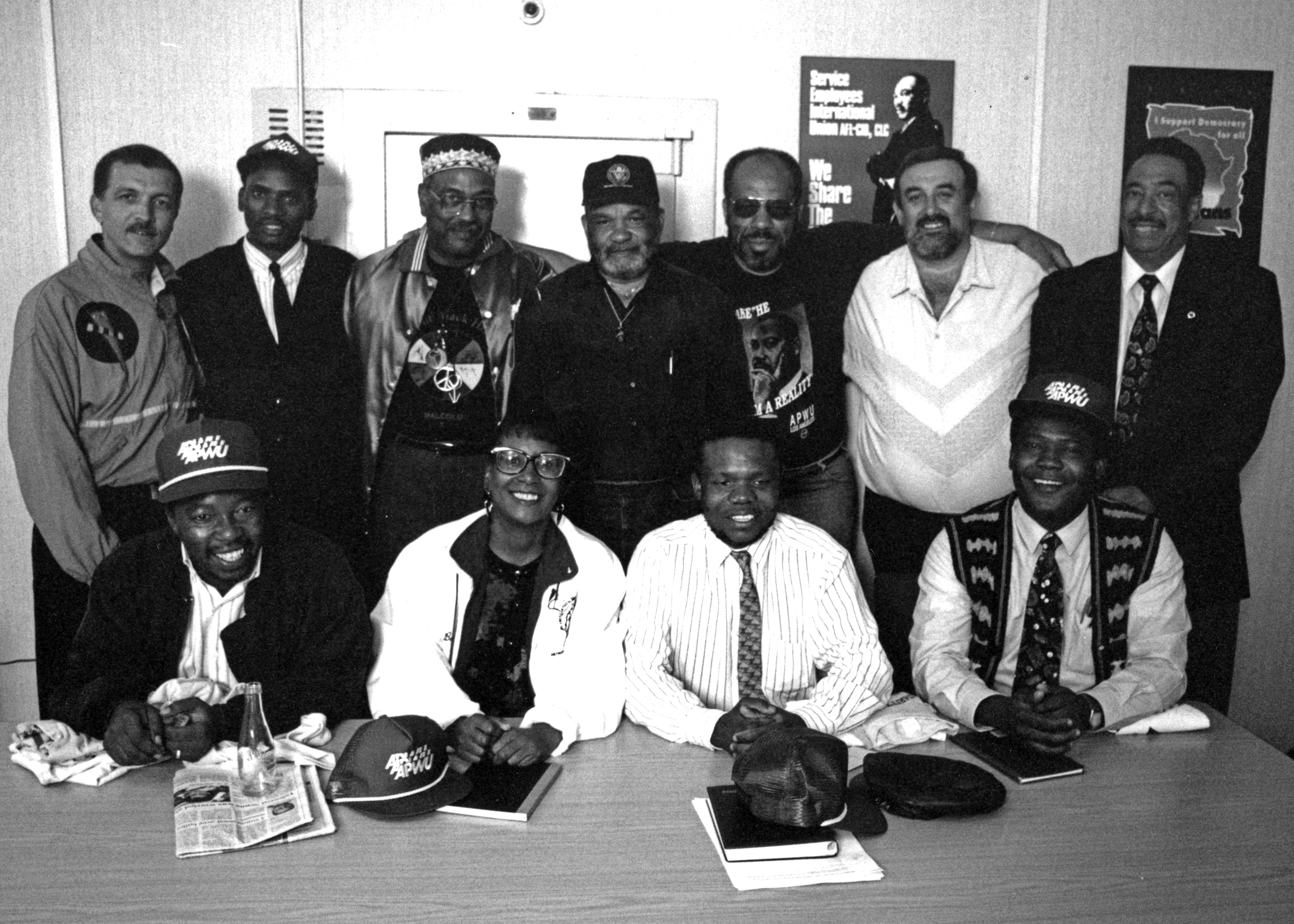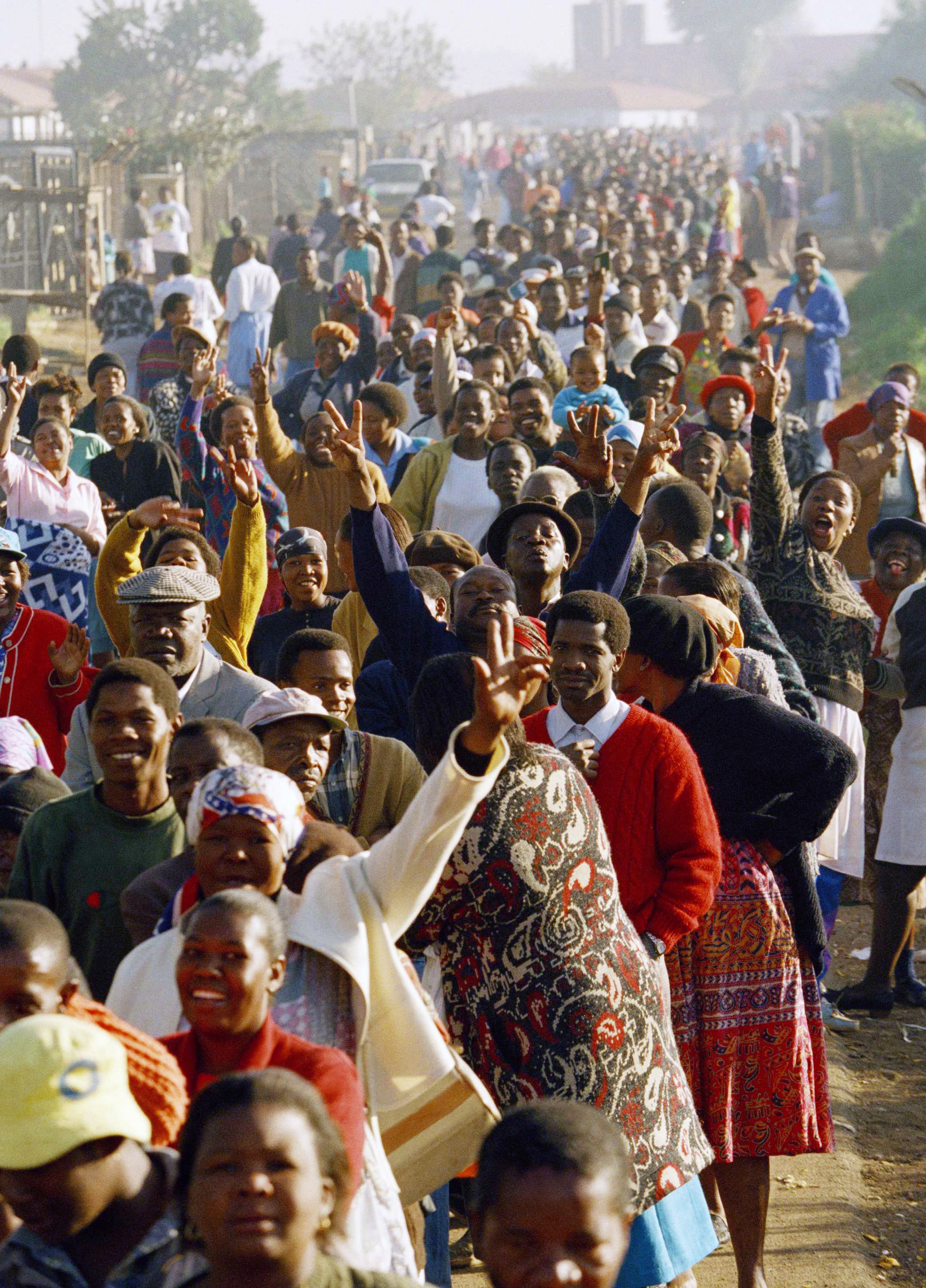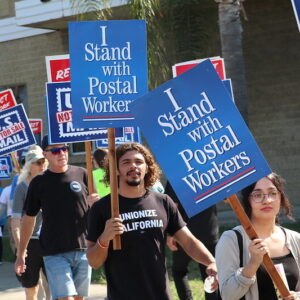March 19, 2024
Labor History: APWU Helped Usher in the End of Apartheid in South Africa

April 20, 1994 – The AFL-CIO sent an 89-member delegation to observe South Africa’s first free and fair elections. The delegation included seven APWU members.
Despite violent attacks, including nearby bombings by groups seeking to disrupt the historic vote, the delegation of APWU representatives were undeterred.
The decades-long international struggle to end South African Apartheid, a system of racial subjugation that denied the Black majority basic human rights, peaked in the 1980s. In the U.S., civil rights groups, religious organizations, student groups, and labor unions advocated for legislation to impose economic sanctions on the South African regime.
In 1990, mounting international pressure and sustained economic and political action from workers within the country paid off. The South African government freed anti-apartheid leader Nelson Mandela, who had been a political prisoner for 27 years. Banned political parties were legalized and the dismantling of the Apartheid system began.
In 1992, negotiations with South African President F. W. de Klerk led to a vote for a new government on April 27, 1994. As leaders of their respective political parties, Mandela and de Klerk were the two major candidates for president.
The day after arriving in South Africa, the team of U.S. labor delegates was reminded of the dangers when a bomb exploded at the airport, and a subsequent bombing two blocks from their hotel killed 16. Another bomb targeted South African union offices in Pretoria, where delegates were set to attend a meeting, but it was found and defused. Despite the dangers, the APWU observers were undeterred.
Fanning Out to Polling Places
 After receiving training on the election procedures, the APWU delegates observed polling sites in Johannesburg, Kimberley, New London, Pretoria, and Vereeniging. Working with other union activists on behalf of the Independent Election Commission of South Africa, they monitored polling stations and watched the vote counting for signs of election interference. The observers were impressed by the patience of people who lined up at the polls and waited for 12 or more hours to vote.
After receiving training on the election procedures, the APWU delegates observed polling sites in Johannesburg, Kimberley, New London, Pretoria, and Vereeniging. Working with other union activists on behalf of the Independent Election Commission of South Africa, they monitored polling stations and watched the vote counting for signs of election interference. The observers were impressed by the patience of people who lined up at the polls and waited for 12 or more hours to vote.
The South Africans they met appreciated their acts of solidarity. “Thank you for making it your business, to have an interest in liberty and democracy in South Africa,” said South African Post and Telecommunication Workers Association President, Lefty Monyokolo. “We won’t forget it.” Elected with almost 63 percent of the vote in a seven-candidate fi eld, Mandela was sworn in as South African President on May 10, 1994, as more than a billion people watched on television. ■

